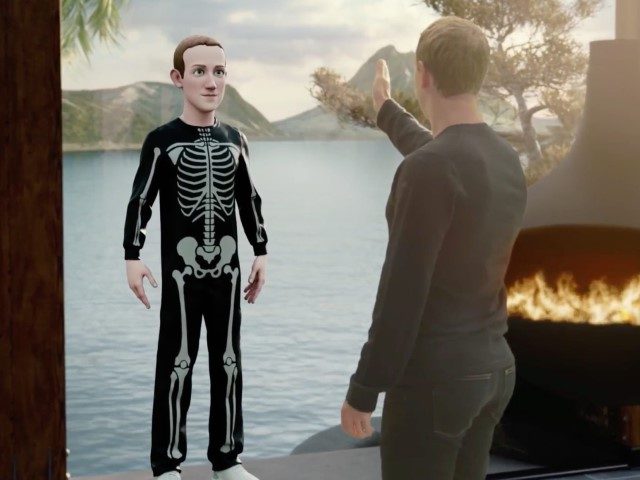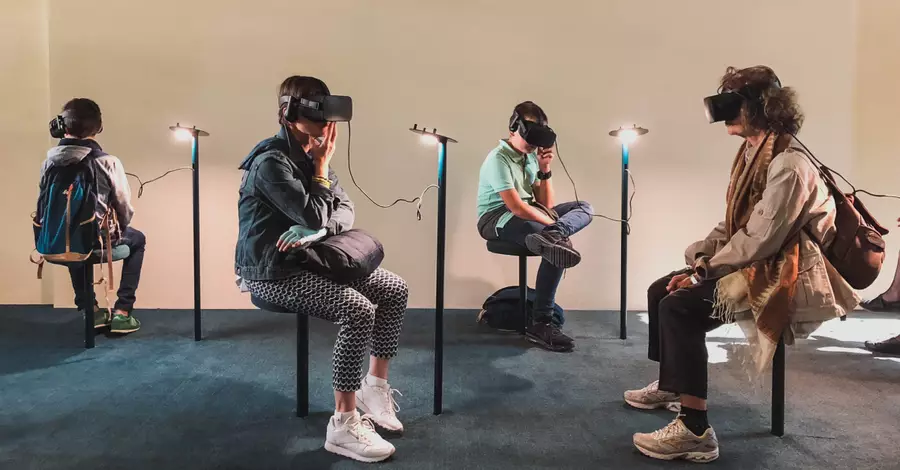The Judeo-Christian faith begins with the reality that "In the beginning, God created the heavens and the earth."
In his latest announcement, Mark Zuckerberg's "reality" is that he is going to move beyond Facebook with an alternative reality to real life that encompasses a Utopian life, that among other things will "one day let you show up in a virtual space as a full-bodied avatar, or as a hologram of yourself in a real-world living room of your friend who lives across the planet."
Questions are plentiful. Why is he doing this? Can he actually do this, and what does it mean to me?
If I didn't believe this is important, I wouldn't mention it.
Be informed, not misled.
A couple of weeks ago Facebook founder Mark Zuckerberg announced he was changing the name of the company---Facebook---to "Meta," because "Meta is an effort to encompass its virtual-reality vision for the future---what Zuckerberg calls the 'metaverse'."
ABC News suggested he was reacting in the "shadow of mounting controversies" arising from leaked internal documents and emails that paint a very different picture of a Facebook than the one presented to Congress each time he and other social media icons are called on to testify before a congressional committee.
Former Facebook employee-turned-whistle-blower Frances Haugen released a ton of internal documents, after leaving the company, that reveal how Facebook ignored or downplayed internal warnings of the negative and often harmful consequences its algorithms wreaked across the world.
Facebook is still the world's largest social media platform.
On December 1, Facebook's shares will begin trading under a new ticker symbol, "MVRS."
Why is Zuckerberg really doing this?
The media can speculate, and they are, but in a lengthy letter he lays out his vision.
What is the metaverse? He says:
"Think of it as the internet brought to life, or at least rendered in 3D," describing it as a "virtual environment" you can go inside of---instead of just looking at on a screen. Essentially, its a world of endless, interconnected virtual communities where people can meet, work and play, using virtual headsets, augmented reality glasses, smart phone apps or other devises.
A recent demo on Facebook suggests the company may someday allow virtual chess games across the world via holograms.
In the "metaverse," we become omnipresent. So does Mark Zuckerberg.
Zuckerberg is not the only one dreaming this dream. But, he is the main one.
Earlier this year a metaverse-focused fund, the Roundhill Ball Metaverse, ETF, began trading on the New York Stock Exchange using the ticker symbol META---which has forced Facebook to use the MVRS symbol instead.
The metaverse as an idea isn't new, but it wasn't until Zuckerberg thrust it into the mainstream conversation and started talking about his plans---and began spending tens of billions of dollars in development, that the general public started paying attention to what he's doing.
The concept was found in "Snow Crash," a dystopian novel from the 1990s in which people flee the crumbling real world to be fully immersed in a virtual one. While he acknowledges that the origins of the word are a "con," he is trying to reclaim the metaverse as a Utopian idea that will unlock a whole new alternative world.
The software underpinning, according to Zuckerberg, is called "Horizon"---kind of a knock-off of something between "Minecraft" and "Roblox."
There's much more regarding software, etc., in the article linked above.
Here's why it's important to Christians.
First, many Christians around the world are on Facebook, and the "remake" is already underway.
Be careful.
Secondly, Zuckerberg and his warriors are playing to the anxieties of the world.
The nearly 2-year COVID pandemic is creating all kinds of mental and emotional stress and depression.
And confusion.
The political and cultural structure of the world is getting very shaky for several reasons---one of the main reasons is that America is no longer leading because we have no leadership.
Whether countries have loved us or hated us, the United States has typically led. Now there is a vacuum.
Before "Snow Crash" in the 1990s, philosopher Robert Nozick proposed a thought experiment he called the "experience machine." He was actually trying to challenge hedonism, the belief that the highest good in life is finding the most pleasure. Imagine a machine, Nozick said, "that would stimulate in our brains all the best experiences we could imagine."
Nozick assumed that ultimately people would choose the "real" experience over the "fake experience."
He believed that people still wanted an experience bigger and more real than a machine-made experience could provide.
Fast forward about a half-century.
John Stonestreet is President of the Colson Center for Christian Worldview.
He says:
One glaring problem with the metaverse idea is that it encourages us, at least implicitly, to forget our bodies. This is something made possible by a pre-existing condition. One irony of the sexual revolution is that by making bodily pleasure a central object of our worship, we treat the body as if it can be remade and molded into whatever our minds choose. In such a world, its essential to remind each other that we are not "just" minds or feelings.
Our bodies are much more than mere tools that serve or get in the way of our experience of the world.
We worship as bodies and with our bodies. We serve others as bodies and with our bodies. And we make new people who are, in no small part, bodies---with our bodies. God secured our salvation by "becoming flesh."
Stonestreet says:
"Discernment on this front is crucial because culture often changes subtly. The metaverse isn't going to be theoretical one day and then full reality the next. If it happens, it will happen by degrees, and the process of acceptance is already in place: Technology makes something more convenient. We embrace it. Before long what was convenient becomes unavoidable, and then necessary. If we personally opt out of the thing, it can still become an essential part of the cultural waters in which we swim. You may not have a Facebook account today, but Facebook is an integral part of how the worlds of commerce, politics, education, and, to a degree, even personal relationships, now work.
Takeaway
"We are closer today to plugging into Nozick's experience machine than we were in 1974, because the machine is being built a component at a time, and we find each part enticing and helpful," Stonestreet says.
The reason I wrote this today---and we write here every weekday and host our daily radio program-- is that "The tragedy is waiting to question each component of the machine until the day we wake up to find we are already plugged into it."
Remember George Barna's example of the frog in the kettle---comfortable and half asleep, as they turned up the heat---ultimately cooking the frog. He never saw it coming. Everything felt just fine.
This is why we must...
Be Informed. Be Discerning. Be Vigilant. Be Engaged. Be Prayerful.

:format(webp):no_upscale()/cdn.vox-cdn.com/uploads/chorus_asset/file/22964096/DSCF7682.jpg)


